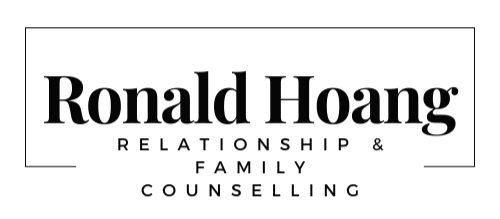When Should You Seek Counselling?
“Is what I’m going through a REAL problem? Is it something that people see a therapist for?”
Questioning whether the issues in your life are enough to see a professional is common, and often, by the time individuals are asking, they’ve already crossed the threshold where seeking help is advisable. If you find yourself questioning whether to seek counselling, it’s likely a good idea to do so.
A problem is a problem when it interferes with your normal everyday functioning or when a recurring issue leaves you feeling stuck. Counselling can serve as a catalyst for growth and healing.
The Hesitation to Seek Help
So why do we hesitate? Many people wait weeks, months, or even years before sending that email or making that call. There’s something inherently daunting about the idea of counselling.
Cultural Stigma and Misunderstanding
In many cultures, seeking mental health support is still stigmatized. Some individuals may fear being labeled as "weak" or "broken," while others might not understand the benefits of therapy. This stigma can deter individuals from seeking help, even when they know they are struggling.
Internal Barriers
Understanding the discomfort of counselling is crucial. Many people sense that something is off in their lives, yet they often respond with denial. They have thoughts like:
“I can handle this on my own” or
“If I ignore the problem, it will go away” or
“I should just be more positive”
While these attempts to cope might provide temporary relief, they can lead to deeper feelings of shame when progress isn’t made. This shame can create a vicious cycle, prompting individuals to try even harder to manage their issues alone, sometimes resorting to unhealthy coping mechanisms.
The Turning Point
Eventually, many find themselves at the crucial moment of realization:
“I can’t do this alone; I need help.”
This vulnerable admission is a significant step, and it’s a testament to the bravery required to seek support. Recognizing that you need help can be liberating; it opens the door to healing and growth.
Finding Help
Once you acknowledge the need for help, the next challenge is figuring out where to go. Unlike scheduling a doctor’s appointment for a cold, finding a therapist can feel overwhelming. You might question whether your experiences are “normal,” and if you decide to seek therapy, knowing whom to trust can be daunting.
Navigating the Search for a Therapist
Many individuals look online, contact their insurance providers, or ask friends for recommendations. However, even then, it’s common to find that not everyone responds, and some available therapists may not make you feel comfortable during initial conversations. Remember, finding the right therapist can take time. It’s okay to consult with several before settling on one.
The Importance of Fit
Let’s be honest: some therapists simply aren’t a good fit. Find someone you’re comfortable with, someone who you feel “gets you”.
If you manage to find a therapist, schedule an appointment, and actually show up, you’ve already accomplished a significant feat.
Once you’re in the session, you’re tasked with sharing personal information—sometimes your deepest secrets—with a complete stranger. It’s no wonder this can feel incredibly uncomfortable.
Is All the Discomfort of Counselling Necessary?
Despite the discomfort, there’s a good chance that seeing a therapist can help you move forward with the mental or interpersonal issues you’re facing. If you’re uncertain, a great starting point is to reach out to a few therapists. Ask, “Can you help me?” and gauge how they respond. Take your time deciding whether to schedule an appointment; it’s essential to find someone you feel comfortable with.
What to Expect in Therapy
Therapy isn’t a one-size-fits-all solution. Each therapeutic relationship is unique and evolves over time. You can expect to explore your thoughts and feelings in a safe, non-judgmental space. Effective therapy often involves discussing your past, identifying patterns, and developing coping strategies for the future.
Encouragement to Reach Out
My hope in sharing this is to highlight how challenging and sometimes painful it can be to open up to the counselling process. Understanding this journey may encourage you to reach out sooner if you need help or to support someone else in their journey.
Seeking help is not a sign of weakness; it’s a profound act of self-care and a step toward a healthier, more fulfilling life.

